What impact will the Hague Group conference convened by Colombia to halt the Palestinian crisis have?

The Hague Group countries concluded their conference on Palestine in Bogotá with a joint declaration in which they pledged to activate legal mechanisms to try to block the shipment of arms and any type of support for Israel's actions in the Gaza Strip, which they consider an "illegal occupation" that endangers "the peace and security of the region."
The closing ceremony took place at the San Carlos Palace, headquarters of the Ministry of Foreign Affairs, and was attended by members of the coalition founded in January of this year and delegates from 32 states , despite the rejection of the Confederation of Jewish Communities of Colombia and the opposition, which questioned the government for supposedly focusing its efforts on this type of events and not on plans to combat the public order situation in several departments.
Deputy Minister Mauricio Jaramillo was in charge of reading the agreed measures.
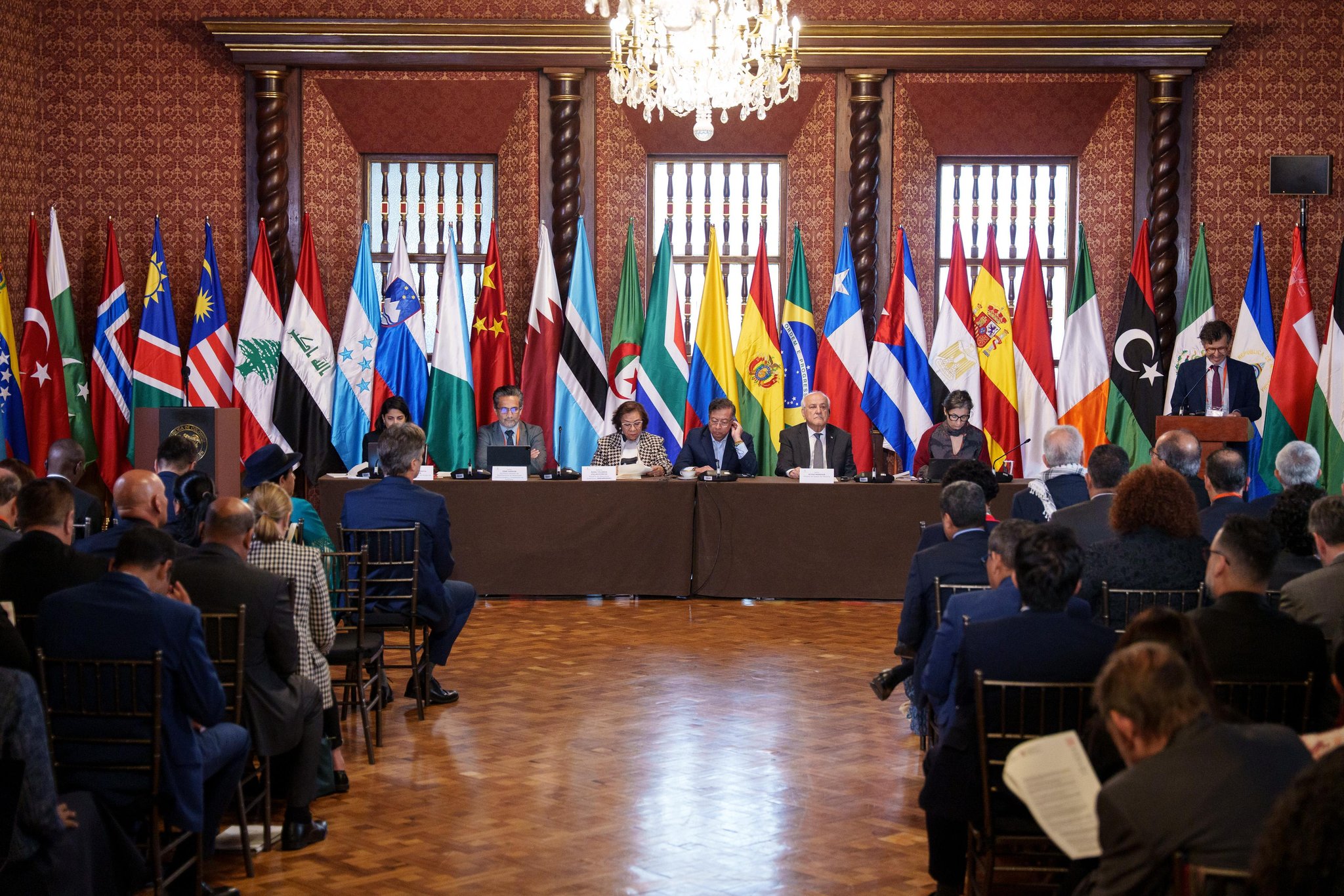
Closing of the Hague Group conference. Photo: Foreign Ministry
First, they will seek to prevent the supply of arms , ammunition, military fuel, or dual-use equipment to Israel. They will also prevent the transit, docking, and provision of services to vessels in any port, if applicable, within the territorial jurisdiction of the signatory countries, so that their waters do not serve as a conduit.
They also consider it appropriate to launch an urgent review of all public contracts in order to prevent public institutions and funds, where appropriate, from supporting the "illegal occupation" of the Palestinian territory. They also propose taking action to ensure accountability for serious crimes against international law through independent investigations and prosecutions.
According to Jaramillo, these measures demonstrate the interest of this group of countries in not "remaining passive observers of the devastation in the Occupied Palestinian Territory." For her part, Francesca Albanese, United Nations Special Rapporteur for the Occupied Palestinian Territory, emphasized that the agreed-upon measures " are not just measures; they are lifelines for people who are being relentlessly attacked in a world that has come to a standstill for too long ."
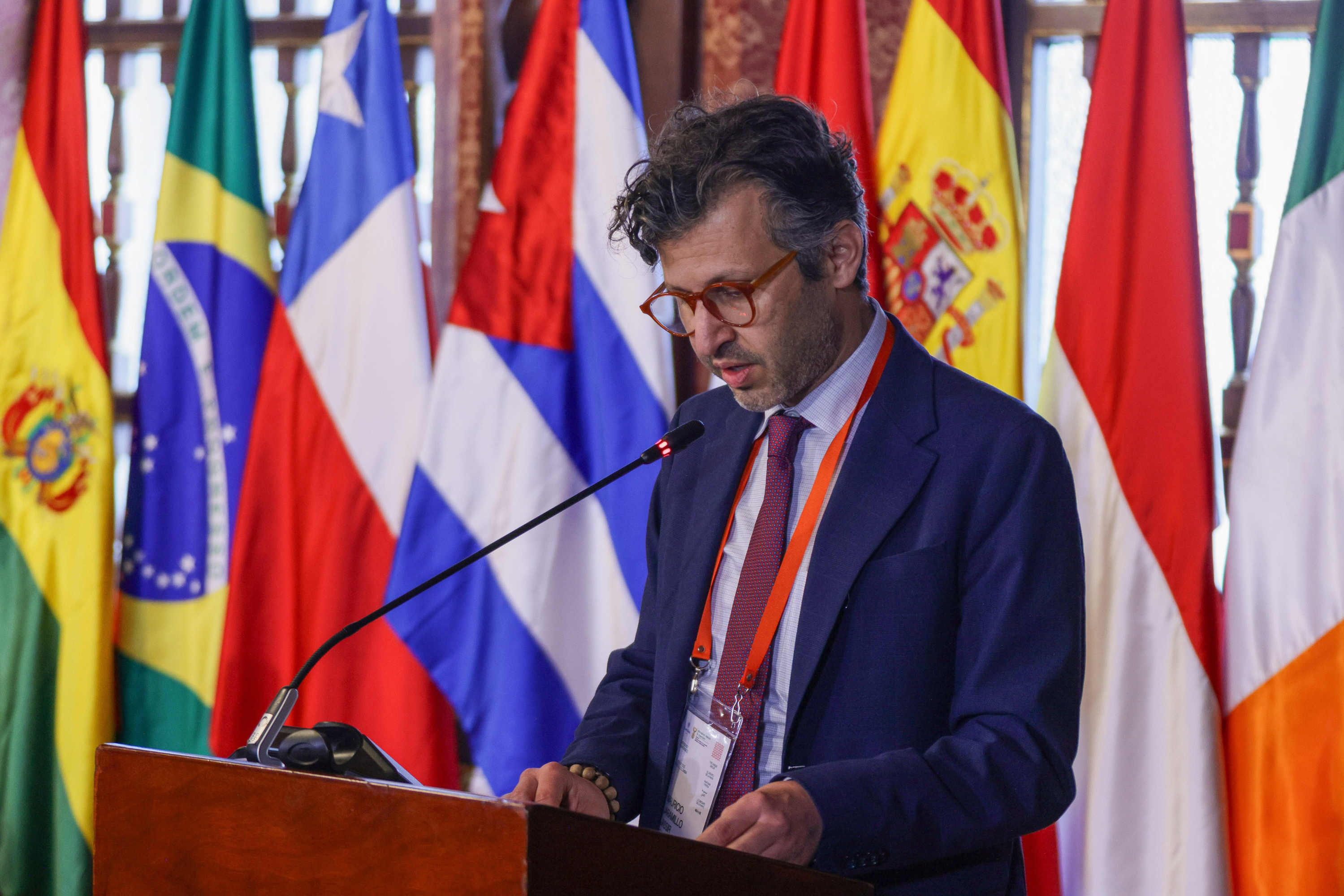
Mauricio Jaramillo Jassir, Deputy Minister of Multilateral Affairs. Photo: Presidency
Beyond intentions, internationalists consulted by this newspaper point out that, given the composition of this group (made up of Bolivia, Cuba, South Africa, Malaysia, Namibia, Senegal, Honduras and Colombia), its impact on sanctions is weak compared to the network of relations that Israel maintains and, even if they effectively manage to carry them out, they will have no material effect .
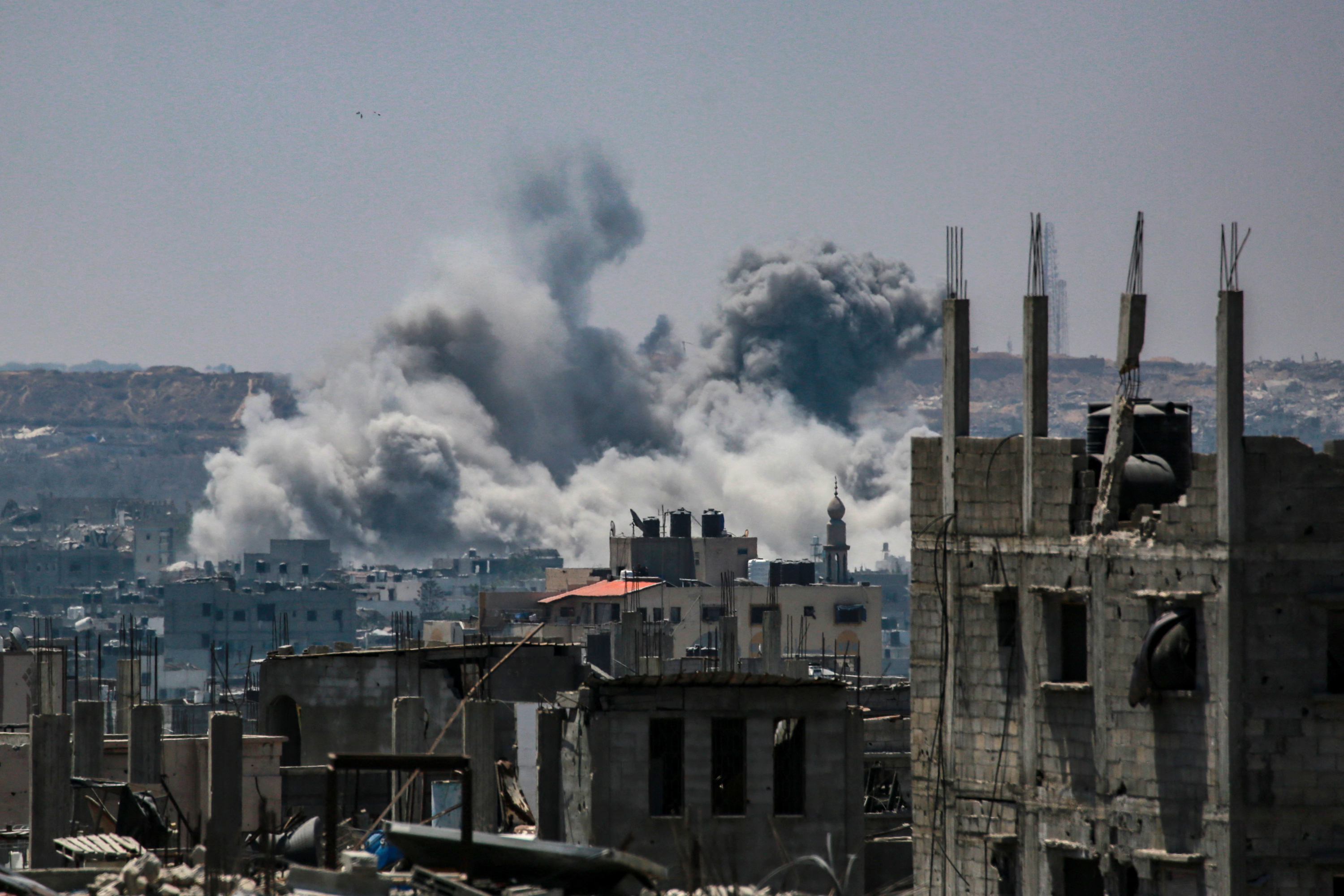
Gaza Strip. Photo: AFP
"In this sense, the announced measures have a declarative effect, with the signatories of the final declaration establishing their general framework for sanctions relations with Israel," said Eduardo Velosa, director of the Master's Program in International Studies at Javeriana University.
For Sandra Borda , while these statements contribute to generating pressure, their impact will be null as long as Israel's main military and security partner remains the United States. " As long as that partnership remains intact, there is no reason to think that these measures will have any impact on Israeli military strength ," she asserted.
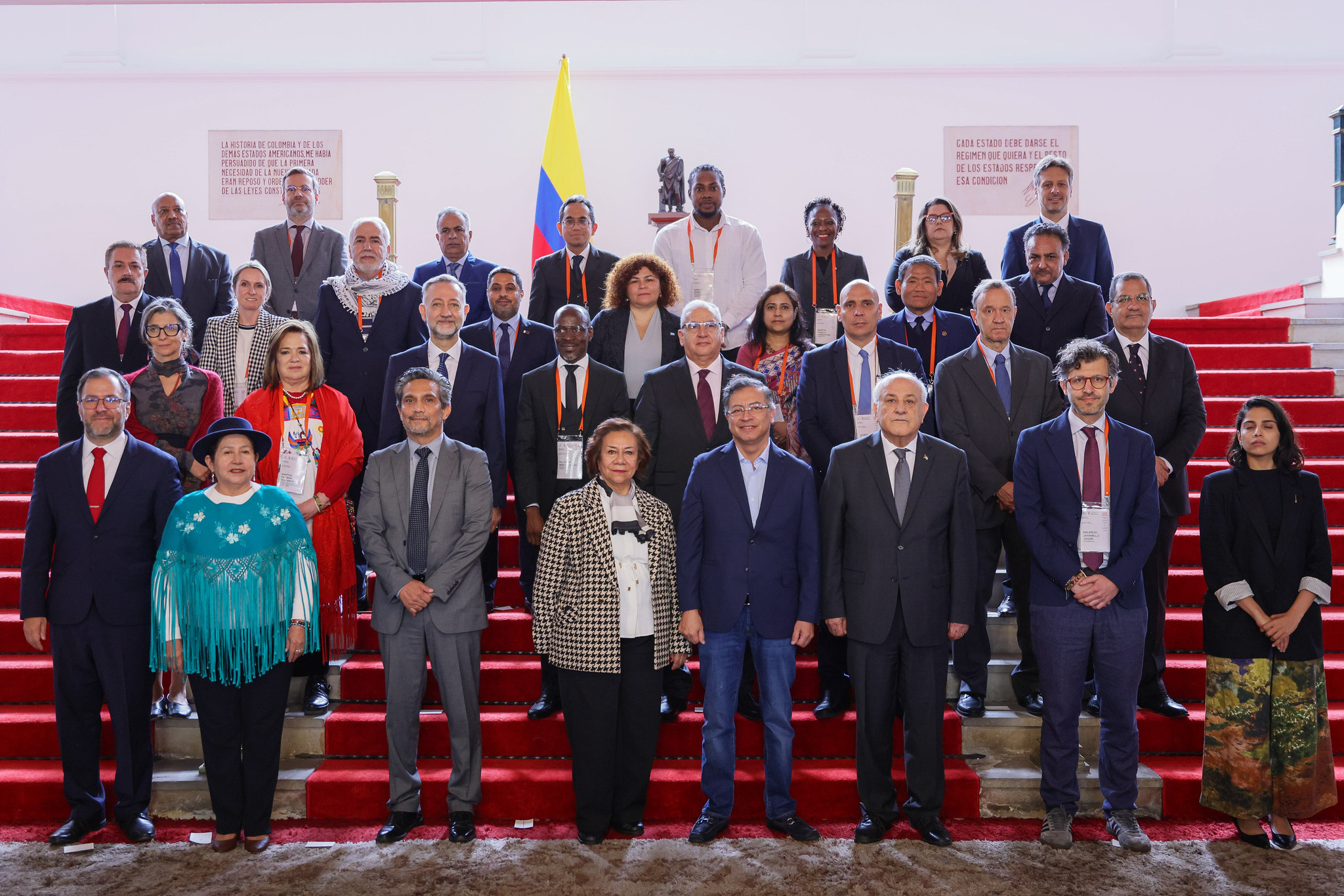
Official photo of the closing of the conference. Photo: President's Office
According to Enrique Prieto , the Hague Group's measures could be pushed through a UN General Assembly resolution—although it is not binding—a Security Council resolution—with the obstacle of a possible veto by Israel's allies such as the US and the UK—or through unilateral sanctions by individual states, an option that also faces limitations due to the strong international support for Israel, especially from Washington.
President Petro's criticisms In that sense, President Gustavo Petro closed the summit and, although the Hague Group's declaration doesn't mention military action, suggested that progress should be made along those lines. "If our call for dialogue doesn't stop the bombs... an army that will save the world. We have to unite so that we are respected. Our voice is not that of clowns, and that is political and military. Our Hague Group must go further," he asserted.
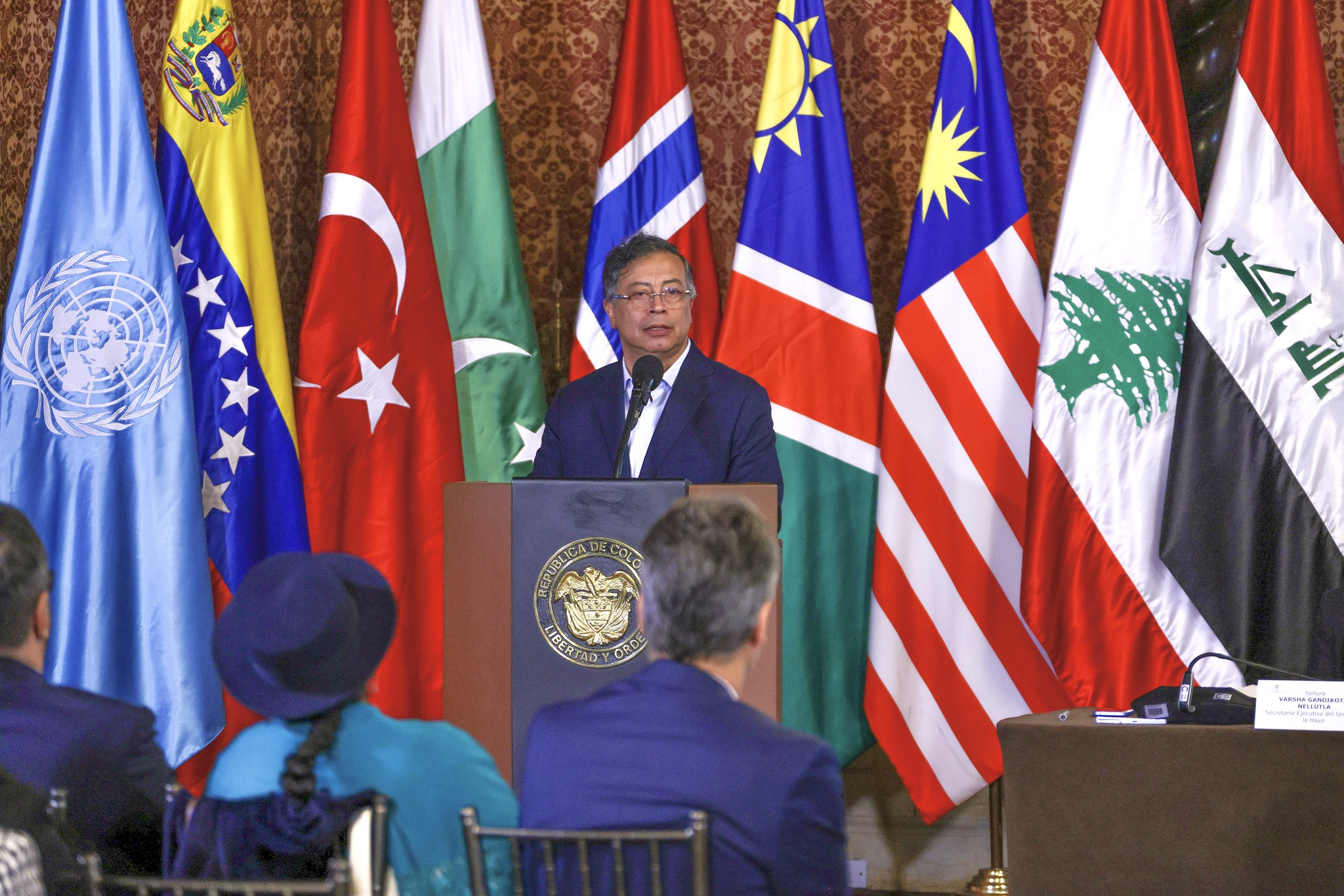
President Gustavo Petro. Photo: Presidency
Along those lines, he proposed leaving NATO, an organization of which Colombia is a global partner, but not an official member. "We must leave NATO; there is no other way (...) And tell Europe that if it wants to be with Latin America and Africa, it must stop helping the Nazis. We must tell the American people to stop helping the Nazis."
The next step in addressing solutions to the conflict that has left 58,000 Palestinians dead will be the UN Security Council meeting in New York later this month on the two-state solution.
Juan Pablo Penagos Ramirez
eltiempo





